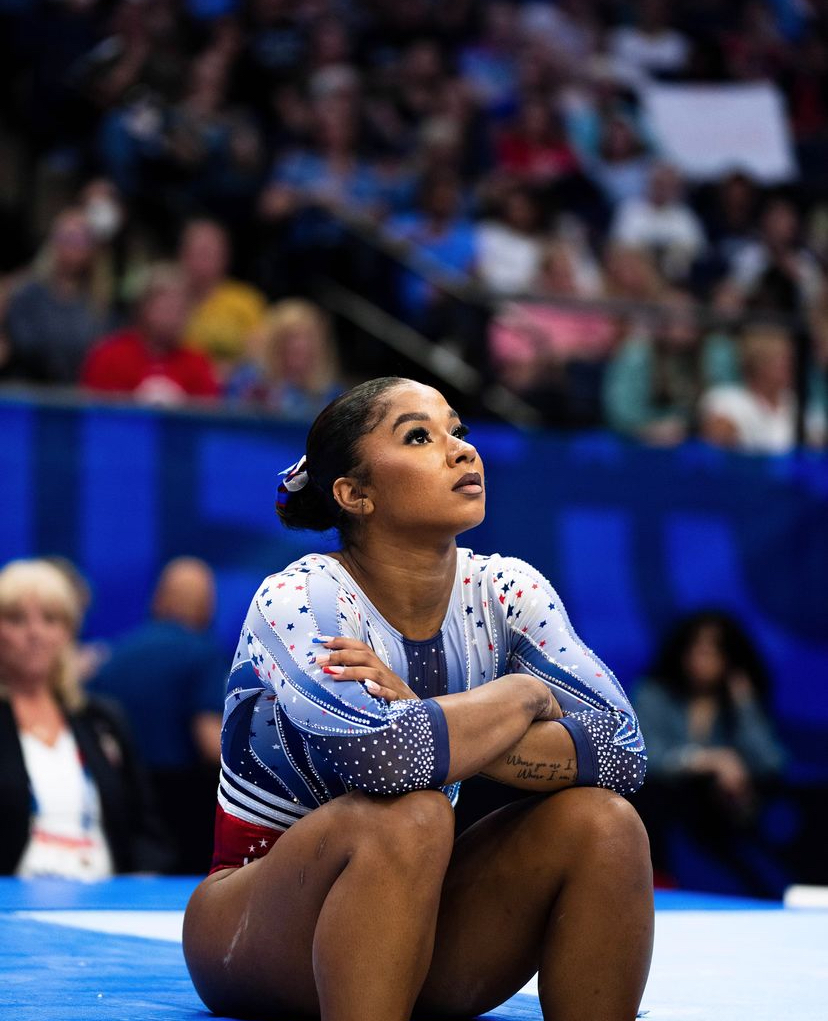After being on the USA Olympics National team for over a decade, Jordan Chiles, at age 23, had one goal: to win an individual medal at the Olympics for the first time. (She won a team gold medal in 2024 and a team silver medal in 2020.)
However, on the night of the women’s Olympic individual floor competition, despite performing a near flawless routine, Chiles received a score of 13.666 out of 16, leaving her in 5th place after Romanian gymnasts Sabrina Maneca-Voinea and Ana Barbosu and off the award podium.
Cecile Landi, Chiles’ coach, submitted an inquiry about the difficulty score on one of the turns in her routine. The inquiry proved successful, moving Jordan Chiles up to the podium and awarding her with a bronze medal to take home.
Unfortunately for Chiles, Romanian prime minister Marcel Ciolacu objected to the call and threatened to not attend the closing ceremony unless Barbosu’s routine was reviewed again. Soon after, a claim stating Landi’s review was submitted four seconds after the allocated one-minute inquiry time was confirmed. This absurd technicality ended up costing Chiles her deeply prized individual bronze medal.
After this devastating result, many observers began to throw shade on the International Olympic Committee (IOC), claiming both Barbosu and Chile should have been awarded a bronze. Especially after the controversy of the opening ceremony, which included the mockery of Christianity , the Olympics faced further backlash from the general population.
The final ruling of the IOC instructed Jordan to return her bronze medal, and it has now been passed to Barbosu.
This controversy sparks a major question for the validity of gymnastics scoring: How do we ensure that judges aren’t making errors in scoring? Also, how do we keep judging free of political pressures? In this case, we believe that the judges are fully to blame, causing athletes to suffer the consequences.
“The error in the Jordan Chiles‘ medal controversy lies with the judges who ‘missed a dance element’ in her floor routine,” former Olympic medalist Dominique Dawes told TMZ Sports.
While this particular incident happened on the world’s biggest stage, it also brings more focus on the potential flaws in gymnastics competitions at all levels.
Sophomore Ece Guverner, a Level 9 rhythmic gymnast, has also expressed her frustration in gymnastics scoring, saying that in her experience, it isn’t always objective.
“Sometimes I feel like it’s subjective, and sometimes one routine goes really well and other times I don’t do as well, and I still receive the same score. It just all depends on the judge,” Guverner said.
While the IOC’s poor decision has already been set in stone, the public backlash from this incident should serve as a wakeup call. Stripping both Chiles and Barbosu of their already awarded medals brought not only a bad look for the Olympics, but also a large emotional toll on the athletes involved in the controversy.
Shortly after the final decision was made, Barbosu shared her thoughts on Instagram, expressing sympathy for Chiles regarding the controversy.
“Sabrina, Jordan, my thoughts are with both of you. I know what you must be feeling … but I know you will have the strength to come back even stronger. I hope with all my soul that at the next Olympics, all of us will be on the same podium,” Barbosu said.
The sad truth is that barring poor judging and political interference, Chiles should have received the medal she worked so hard for at the 2024 Games.






























